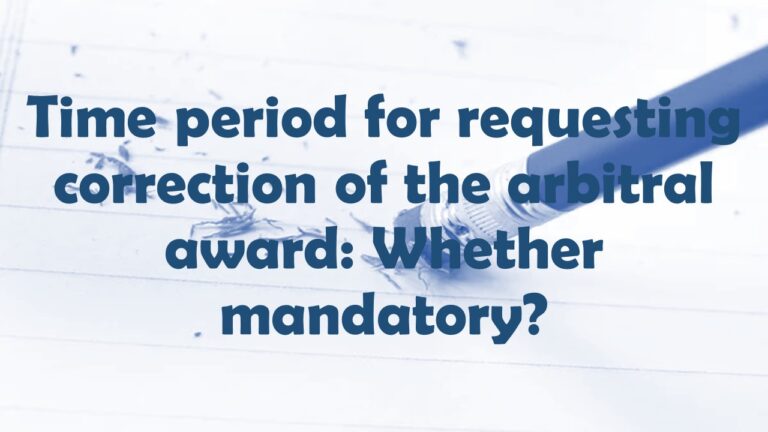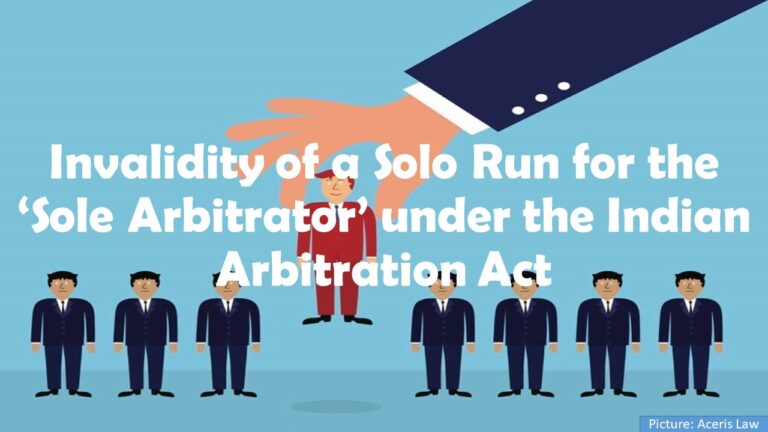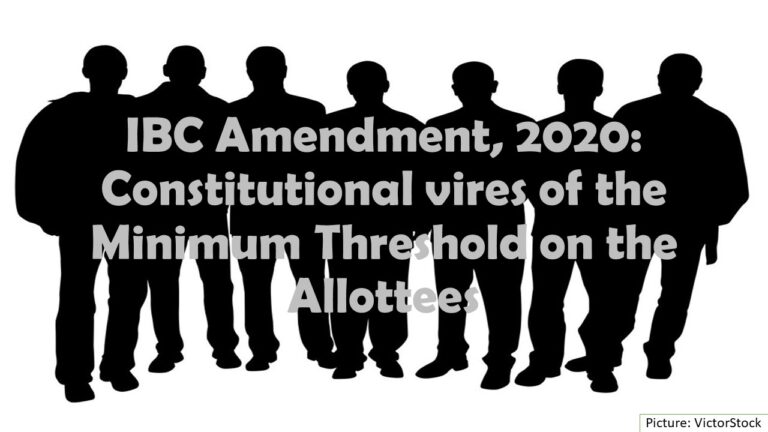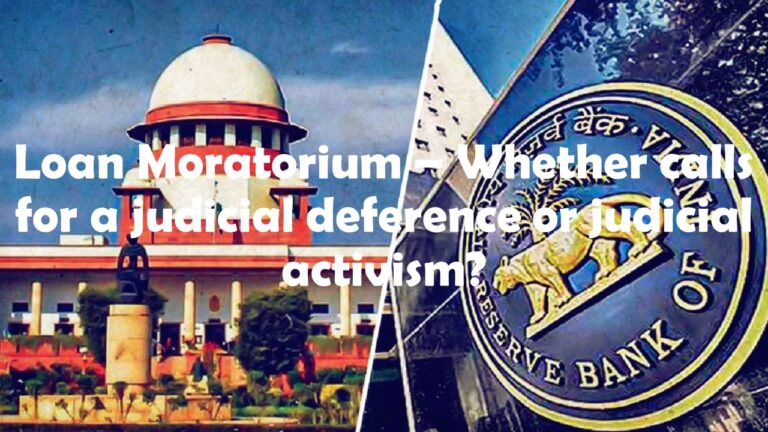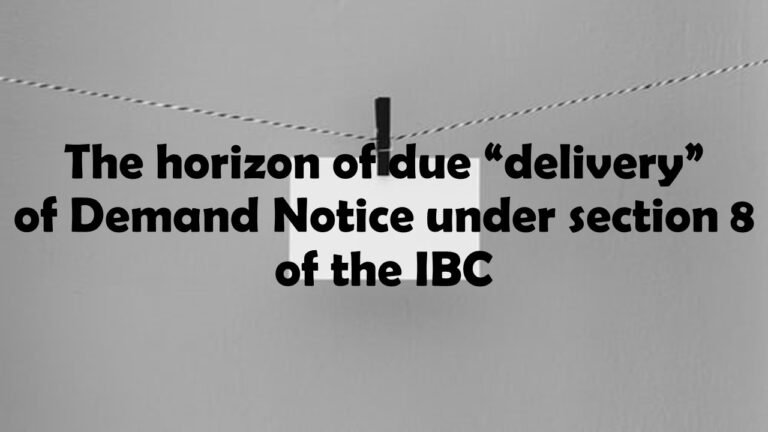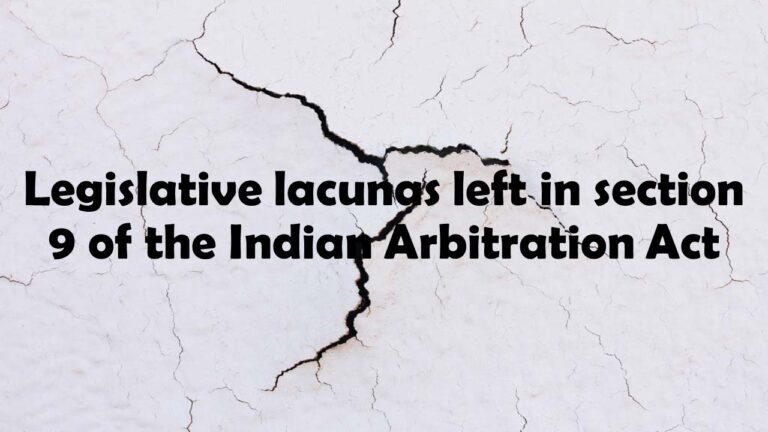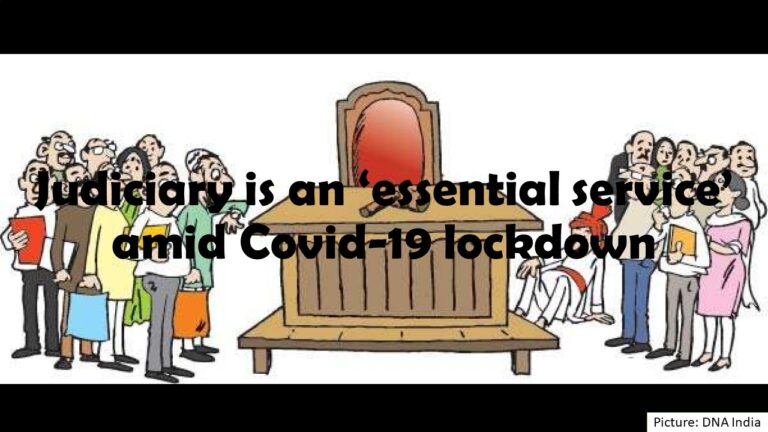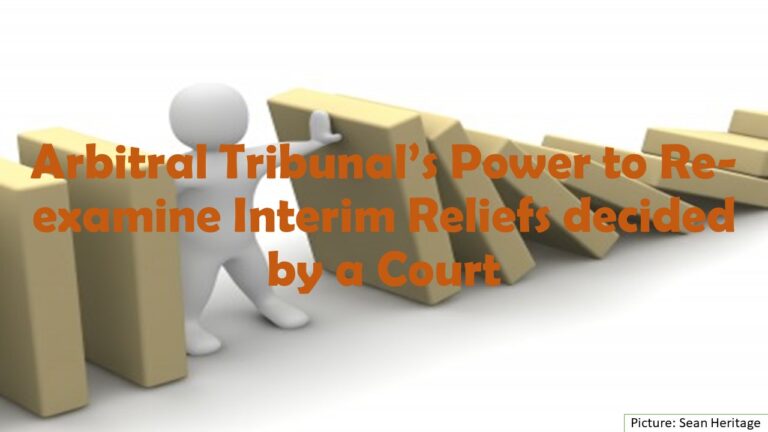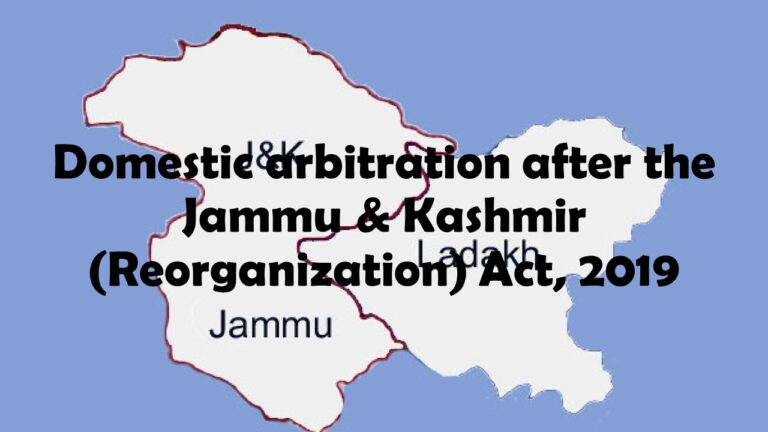Explaining the Law
Opinions
Fixing timelines is one of the oldest instruments for the speedy adjudication of disputes and giving finality to the litigation between the parties. One such instance is section 33(1) of the Arbitration and Conciliation Act, 1996 (the Arbitration Act) which provides a party to request correction or interpretation of the...
Read MoreNon-interference of courts, except to the extent of supervision, is the spinal cord of arbitration legislations across the jurisdictions. However, the difference between interference and supervision is often differentiated by a thin line. One such occasion raising the question of whether an indulgence of the court is supervision or interference...
Read MoreDemocracy is a form of government, which is of the people, by the people and for the people. Undoubtedly, the term “people” cannot denote “silent people”, but also those with the right to speak and speak not only what is favourable but what is unfavourable or dissenting. Sans this, democracy...
Read MoreThe principle of party autonomy is the backbone of arbitration. The freedom to choose the seat of arbitration is another key aspect of that principle. This article examines only one facet of this: whether two or more domestic parties can choose a foreign seat of arbitration in India and a...
Read MoreThe legislature of all the Provinces enacted the Drugs & Cosmetics Act, 1940 (“the Code”) the principal legislation, “to regulate the import, manufacture, distribution and sale of drugs and cosmetics” for the whole of India. The Code provided the position of Inspectors for the said purpose, whose conditions to qualify...
Read MoreParliament of India enacted the Insolvency and Bankruptcy Code, 2016[1] (“the Code”) to consolidate laws relating to insolvency and bankruptcy in India and provide an effective legal framework for timely resolution of the companies. The Code provided Financial Creditors and Operational Creditors with the right to initiate the Corporate Insolvency Resolution...
Read MoreThe Arbitral tribunal & Courts are the two engines of any arbitral proceedings. They, depending on the stage, pull the arbitral process until an arbitral award is enforced. The role of the courts in this process is restricted to mere supervision and not intervention. However, what is supervision and what...
Read MoreThe notion of independence and impartiality of the adjudicators, be it in the identity of judges or arbitrators, is a hallmark of any adjudicatory process. Nemo iudex in causa sua, meaning that no person should be a judge in his own cause, is a cardinal principle of natural justice, regardless of...
Read MoreIntroduction The law of evidence is a system of rules for ascertaining controverted questions of fact in a judicial investigation of the dispute before the Court. In India, the Indian Evidence Act, 1872 (“Indian Evidence Act”) is the principal legislation indicating, what is evidence, what are the types of evidence,...
Read MoreConfidential information may be understood as information which, either by its nature, or by a specific impression of the provider of the information, has been directed as confidential and has been prohibited to be shared with any unauthorized third person. Such information must not available in the public domain. The...
Read MoreThe halt brought in various sectors by the novel virus Covid-19 is now being jiggled to open up the sectors. After a streak of complete lockdowns, a streak of ‘unlocking’ has now joined its hands with the former. Until now, the Government has issued guidelines for Lockdown 5.0 and Unlock 4.0....
Read MoreThe administration of justice is one of the most essential function of the State for a due safeguard of the rights and lives of its people. The key functionaries in this system are police, prosecution, defense counsels, and courts and corrections. Each of these functionaries has defined powers and functions...
Read MoreThe Legislature of India enacted the Insolvency and Bankruptcy Code, 2016 (“the Code”) for the speedy revival of companies and consolidation of laws relating to liquidation. The Code provided Financial Creditors and Operation Creditors a right to initiate the Corporate Insolvency Resolution Process (“the CIRP”) against a Corporate Debtor, before the National Company...
Read MoreThe pandemic and the hardships attached to it are now the ‘new normal’. And interestingly these hardships are manifold and omnipresent. It has seeped in the life of nearly every person, be he a private individual pulling a rickshaw or be it a highest department of the Government. Barring a...
Read MoreI. Introduction i. Affidavit: Meaning and Purpose “An affidavit is sworn, written statement, confirmed by oath or affirmation, voluntarily made by an affiant or deponent, administered or notarized by a person authorized to do so by law”.[1] The amendment in the year 1999 in the Code of Civil Procedure,...
Read MoreIntroduction The Insolvency and Bankruptcy Code, 2016 (“the Code”) was enacted to amend and consolidate the laws relating to reorganization and insolvency of the corporate persons and to ensure a speedy revival of the corporate person(s). For this purpose, the Code has provided the remedy of applying to initiate the...
Read MoreBy: Mr. Abhishek Grover & Mr. Pareekshit Bishnoi The lockdown restrictions have been eased, albeit in a staggered manner, allowing individuals to get back to work. However, few of the industries, sectors, and individuals will see a prolonged impact due to temporary change in customer behaviour and consumption patterns. Travel...
Read MoreI. Introduction The Arbitration and Conciliation (Amendment) Act, 2015 (“Amendment Act, 2015”) introduced several amendments to fill critical gaps in the Arbitration and Conciliation Act, 1996 (“the Act”) vis-à-vis international practices. Among several welcomed amendments, the Legislature also amended section 9 of the Act. Before the amendment in the year 2015, section...
Read More“The importance of the judiciary in political construction is rather profound than prominent“. Today, two Acts – the Essential Commodities Act, 1955 (“ECA”) and the Essential Services Maintenance Act, 1980 (“ESMA”) read with Order by Ministry of Home Affairs dated, 24.03.2020 (“the Order”) – are guiding us to understand, what are the...
Read MoreHomebuyers were included as financial creditors under section 7 of the Insolvency and Bankruptcy Code, 2016 (IBC) vide an amendment in the code in 2018. Pursuant to their inclusion, homebuyers could either individually or jointly file to initiate corporate insolvency resolution proceedings (CIRP) before the National Company Law Tribunalagainst the...
Read MoreA person’s credit score and credit information report are a measure of his creditworthiness. A credit report is a detailed breakdown of an individual’s history prepared by the credit bureau. The credit reports are used by the lenders to determine the creditworthiness of the loan applicant. The shared credit information is...
Read MoreThe principle of kompetenz – kompetenz is enshrined in section 16 of the Arbitration and Conciliation Act, 1996 (the Act). Read with section 8 of the Act, this principle gives the arbitral tribunal exclusive power to determine a dispute referred vide the arbitration agreement between the parties. However, the Act does not provide the...
Read MoreBefore the enactment of the Jammu and Kashmir Reorganisation Act, 2019 (Reorganisation Act, 2019), the State of Jammu and Kashmir shared a unique relationship with the Arbitration and Conciliation Act, 1996 (Arbitration Act 1996). Pursuant to Section 1(2)[1], the Arbitration Act 1996 was made applicable to the whole of India, including the State of...
Read MoreThe growing cost of litigation and arbitration and consumption of time due to overcrowded court lists led to a search for quicker dispute resolution processes all across the world. Mediation is one such process which is often attempted to amicably settle the disputes before litigation or arbitration. In the third...
Read More